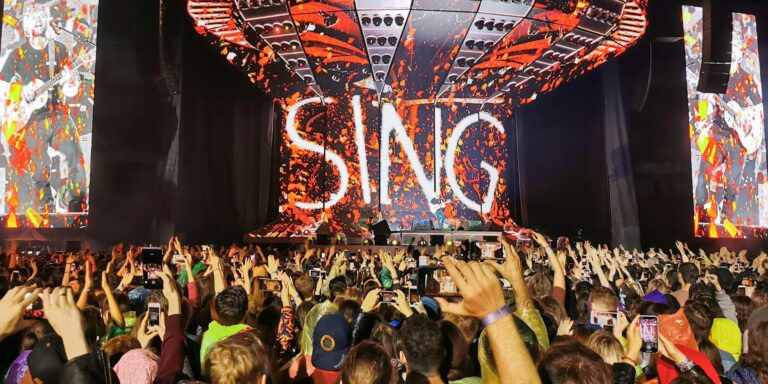Live Nation Entertainment has announced a significant $1 billion investment to develop 18 new and revitalized live music venues across the United States within the next 18 months. This strategic expansion aims to meet the surging demand for live performances and to bring major concerts to smaller cities, enhancing accessibility for fans nationwide.
The new venues will vary in size, ranging from intimate clubs to large outdoor amphitheaters, and are planned for cities including Atlanta, Denver, Pittsburgh, and Seattle. This initiative is expected to have a substantial economic impact, with Oxford Economics projecting a $2.9 billion boost through construction and related activities, and an additional $1.4 billion in annual economic benefits for local communities once the venues are operational.
Michael Rapino, CEO of Live Nation, emphasized the company’s commitment to enhancing the live music experience: “Our mission is simple: help artists deliver more unforgettable live experiences – and in doing so, create jobs, revive cities, and lift up the communities we touch.” He highlighted the company’s role in promoting American creativity and resilience through music.
This expansion comes at a time when Live Nation is experiencing unprecedented growth. In 2024, the company reported record revenues of $23.1 billion and hosted over 151 million fans across more than 50,000 events globally. The momentum continues into 2025, with a 60% increase in stadium show bookings and 65 million tickets already sold for upcoming concerts.
To support this growth, Live Nation has hired 37,000 workers across its U.S. venues, preparing for what it anticipates to be its most significant year in live music to date. The company currently operates 150 venues, accounting for approximately 4% of all music venues in the United States.
However, this ambitious expansion coincides with ongoing legal challenges. In May 2024, the U.S. Department of Justice, along with 30 state and district attorneys general, filed an antitrust lawsuit against Live Nation and its subsidiary Ticketmaster. The lawsuit alleges that the company has monopolized the live entertainment industry, engaging in practices that stifle competition and harm consumers. The DOJ’s complaint highlights concerns over Live Nation’s “flywheel” business model, which integrates concert promotion, venue ownership, ticket sales, and artist management, potentially creating barriers for competitors and inflating costs for fans.
Live Nation has denied these allegations, arguing that the lawsuit misrepresents the company’s operations and the dynamics of the live entertainment industry. The company contends that its integrated model benefits artists and fans by streamlining the concert experience and that issues such as ticket pricing and availability are influenced by factors beyond its control, including scalping and high demand for popular events.
The outcome of this legal battle could have significant implications for the live music industry, potentially leading to structural changes in how concerts are promoted and tickets are sold. As Live Nation continues its expansion efforts, the industry and fans alike are closely monitoring the developments of the lawsuit and its potential impact on the future of live entertainment in the United States.



